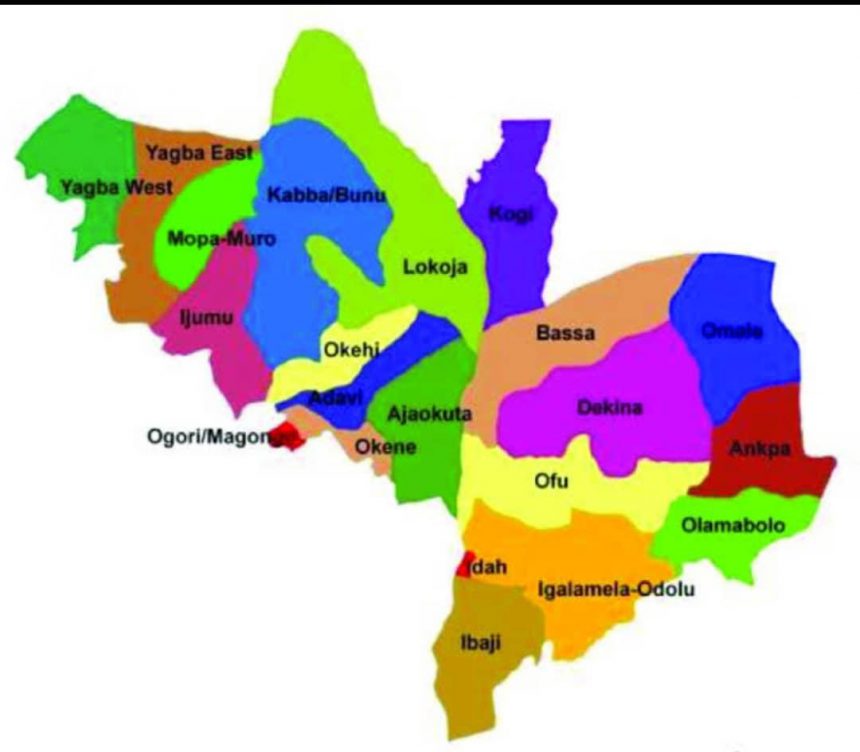PSYCHOPHANCY AND THE MISCHIEF OF NUMBERS: WHY POWER MUST SHIFT TO KOGI WEST IN 2027
Pastor Stanley Ajileye
On matters of arithmetic, one would ordinarily have no reason to doubt the reasoning of Hon. Bashiru Gegu, the Kogi State Commissioner for Solid Minerals and Natural Resources. After all, he is said to be an engineer — a profession whose foundation rests on mathematics and precision. But when an engineer tells us that 4 + 8 + 4 < 16, one begins to wonder whether mischief has overtaken logic, or whether propaganda has replaced principle.
It is an open record that by the end of Governor Ahmed Usman Ododo’s first term in 2027, the Ebira extraction of Kogi Central would have ruled the state for a total of 16 years — 8 years of Yahaya Adoza Bello, 4 years of Ahmed Usman Ododo (ongoing), and 4 years of Adamu Attah in the Second Republic.
In the same historical pattern, the Igala of Kogi East have also governed for a total of 16 years — 4 years under Prince Abubakar Audu (1992–1993 and 1999–2003), 8 legal years under Alhaji Ibrahim Idris, and 4 years under Captain Idris Wada.
These are not opinions; they are facts of history, backed by arithmetic that even a primary school pupil can verify. Yet, our “Engineer” Commissioner would have us believe that the Ebira have not had their fair share of power until 2031. The question then arises: is this a case of ignorance, or a deliberate attempt to distort history in pursuit of political self-preservation?
If Hon. Gegu could count the four years of Abubakar Audu among Igala’s tenure, why should he conveniently exclude the four years of Adamu Attah among the Ebira’s? Such selective accounting amounts to double standard, and it is unbecoming of a commissioner of state.
If, on the other hand, he insists that the four years of Adamu Attah should be excluded because it belonged to the old Republic, then fairness demands that he also strike out the four years of Abubakar Audu, since both of them ruled before the advent of the present democratic era. In that case, each senatorial district would have enjoyed 12 years of governance, and the rotation should naturally proceed to Kogi West by 2027.
Whichever formula one adopts — with or without the Second Republic years — the conclusion remains the same: equity and justice demand that power must shift to Kogi West in 2027.
Unfortunately, what we see instead is a disturbing pattern of sycophancy dressed in logic, where public officers twist facts to please their masters, hoping to secure political relevance or personal benefits. Gegu’s recent write-up attacking Senator Sunday Karimi is a classic case in point. He launched into an unwarranted tirade against the distinguished Senator without presenting a single verifiable statement that warranted such venom. The intention was clear — to curry favor and score cheap political points.
Governance should not be reduced to a contest in flattery. Kogi State deserves leaders who can tell truth to power, not those who manipulate numbers to mislead the public. The future of the state is too important to be mortgaged on the altar of personal ambition.
As 2027 approaches, justice, equity, and fair play must be the guiding principles. Kogi West has waited patiently, supported others, and contributed immensely to the growth of the state. It is only right that the baton of leadership now moves westward, so that every senatorial district can feel a sense of belonging in the Kogi project.
No amount of arithmetic manipulation or political mischief can change the truth: Kogi West’s time has come.












